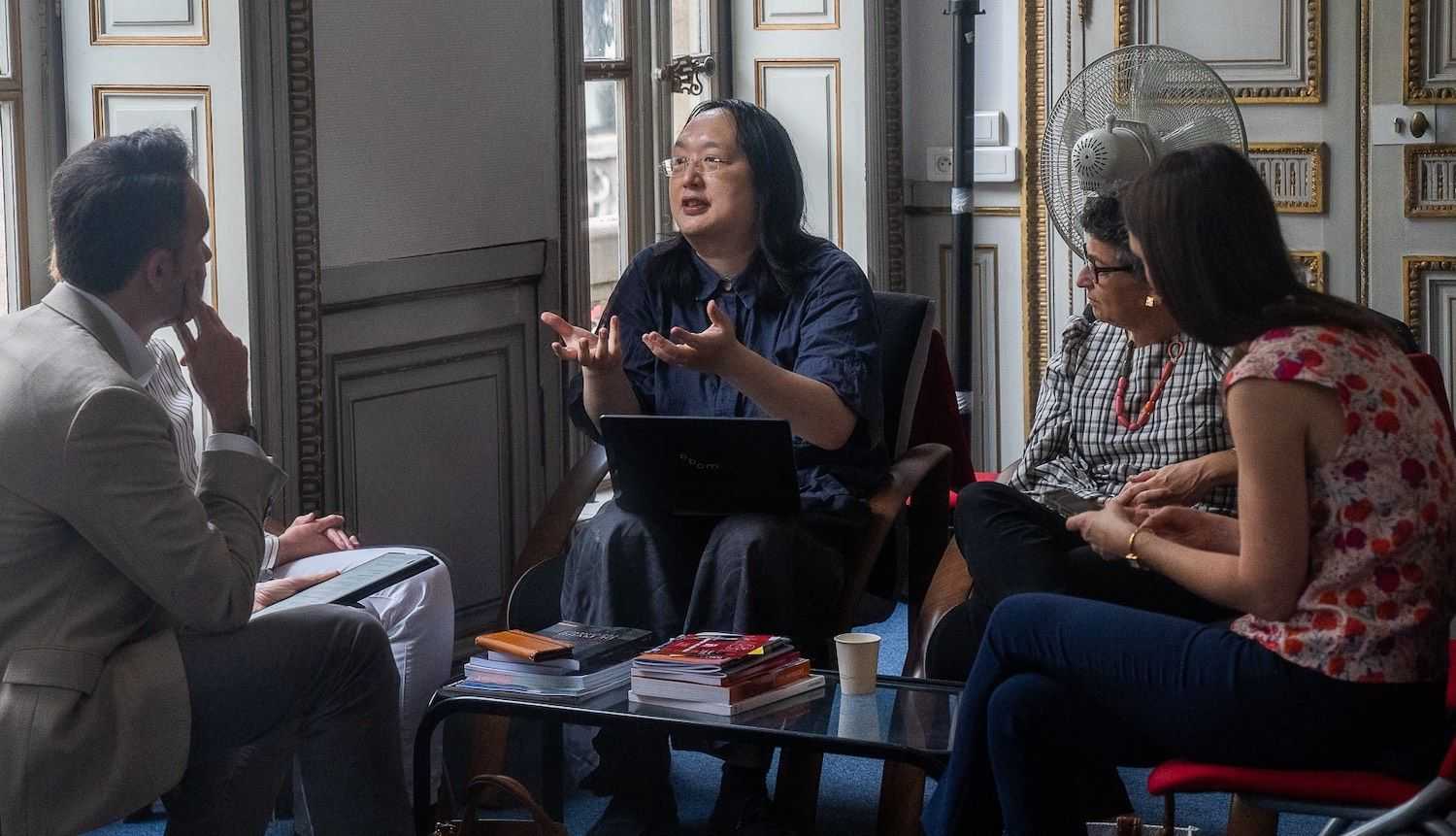Home>Will Technology Save or Destroy Democracy?

06.06.2024
Will Technology Save or Destroy Democracy?
In this critical juncture for democracy, mid-way through this year punctuated by elections around the globe, essential questions arise on how to reconcile the existential challenges posed by technology with our democratic values, and enhance international dialogue and cooperation.
To address those most important concerns, the Technology and Global Affairs Innovation Hub of our Paris School of International Affairs (PSIA) co-organised an international panel discussion on "Scaling collaborative technology to enable the future of multilateralism" with RadicalXchange and the Bertelsmann Stiftung.
Amidst concerns about the disruptive effects of technology on global governance, the gathering sought to highlight its transformative potential in fortifying the resilience of democratic systems. One of the main guest speakers was Audrey Tang, Former 1st Digital Minister of Taiwan, a state that stands as a beacon of innovation, harnessing agile technology to advance democracy, pluralism, and citizen well-being.
Read one of Audrey Tang's contributions to the panel:
I was just at the Copenhagen Democracy Summit, virtually. A lot of people, including journalists, are interested in grassroot collaborative fact checking ecosystems, like Cofacts, but also in tools like Trend Micro, an antivirus ecosystem turned into a disinformation preventing ecosystem with users participation. I think that's important, of course, but tech is not the most interesting bit. It's the fact that the civic society's ideas of debunking, of participatory fact checking, and so on, very quickly made their way into policies and into curriculum.
Starting 2019, we took out the word “literacy” from our curriculum and replaced it with the word “competence”. Students are not ranked any more on how much they remember, or not even critical thinking, but on how much they can contribute to collaborative fact checking. Because it's not the checked facts, it's not the nuggets of truth that protects society from information attacks. It is the act of going through fact checking, of thinking like a journalist, that inoculates a young mind, and through that the older minds, their families, against information and polarisation attacks.
That is why policies work in tandem with technology. When a technological innovation happens, within two months a policy happens as well. That is actually the success story of Taiwan, but it's not very often told in international fora.
> Watch the replay:
Cover image caption: Audrey Tang, 1rst Digital Minister of Taiwan, at Sciences Po, June 2024, Paris. (credits: Clément Gibon / Sciences Po)